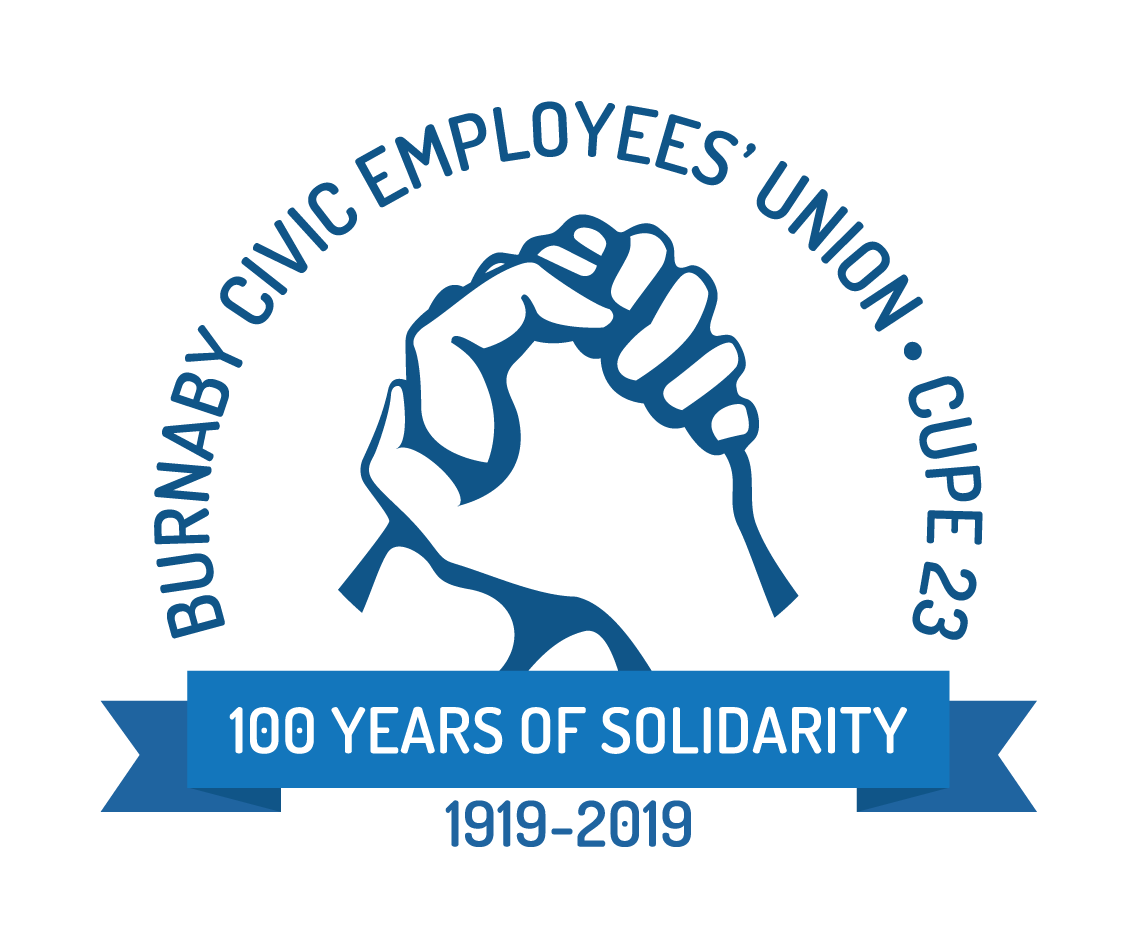- Precarious Workers’ Committee Mandate
- Am I Precarious?
- What is the Precariat?
- Why Should Full-Time and Salaried Workers Care?
- Solution?
- Resources
Precarious Workers’ Committee Mandate
CUPE Local 23’s Precarious Workers Committee aims to:
- Improve the social and economic standing of precarious (part-time, auxiliary, and temporary) workers employed by the City of Burnaby.
- Connect with like-minded organizations and work to improve the social and economic standing of the Precariat on a broader scale.
- Educate CUPE Local 23’s members about precarious work and the precariat.
- Celebrate the Precariat as an agent of positive social change.
Your probably are. In our Local, about half of all members are precarious workers. They include part-time, auxiliary, and temporary workers. The current economic system (i.e. neoliberal system) aims to create a ‘flexible workforce,’ a workforce habituated to low income, uncertain income, insufficient work hours, uncertain work hours, underemployment, few or no benefits, and a general sense of anxiety. The need for a ‘flexible’ – or rather – precarious workforce sits at the very core of neo-liberalism.
Precarious workers are not the only victims of the neo-liberal logic of austerity. There are many others. We refer to them collectively as the precariat. The precariat represents all members of society who are squeezed by the neo-liberal system: part-time, auxiliary and temporary workers, indebted students, temporary foreign workers, unemployed citizens, welfare recipients, EI recipients, impoverished seniors, those on disability assistance, and many more.
Why Should Full-Time and Salaried Workers Care?
Full-time and salaried workers are also affected by precarious social conditions. The fear of falling into the precariat is used to discipline full-time and salaried workers into accepting worse work conditions, worse benefits, and worse wages. Many of these workers are forced to take up part-time or on-call work after retiring, and yet others are precarious themselves, primarily because the minimum wage is so much lower than the living wage. Most importantly, the precariat’s struggle is a struggle for the future of work. Today we see the emergence of an economy of ‘taskers,’ people who sign up online to perform tasks, and then get paid piecemeal for each completed task. Taskers receive no additional benefits or any guarantee of future employment. Likewise, as more and more jobs become automated, competition for jobs tends to increase, driving down wages and workers’ bargaining strength. Job security is becoming a relic. This is why anyone with children, grandchildren, or a concern for youth has good reasons to take active interest in the struggles of the precariat.
Organize! Know that your precariousness is a result of someone’s political decisions and not a product of bad luck or any sort of incompetence. To achieve positive social change, members of the precariat and their allies are coming together and collectively pushing back against the neoliberal system. Join CUPE 23’s Precarious Workers’ Committee, become the voice of the precariat and build capacity for action. Contact Committee Chair (TBA) if you have any questions, wish to join the Committee, or want to receive monthly e-mail updates. All members of the Local are invited to drop in on any of the monthly Committee meetings.
Questions? Contact an Executive member from your division – Executive Board and Trustees
You can also email precarious@cupe23.ca
Guy Standing, A Precariat Charter: From Denizens to Citizens (Bloomsbury Academic, 2014)
Guy Standing, The Precariat: The New Dangerous Class (Bloomsbury Academic, 2014)
Jim Stanford, Economics for Everyone: A Short Guide to the Economics of Capitalism – Second Edition (Pluto Press, 2015)
Joseph E Stiglitz, The Price of Inequality: How Today’s Divided Society Endangers Our Future (WW Norton, 2013)
Still Working on the Edge: Building Decent Jobs from the Ground Up (Workers Action Center, 2015)
Women and Public Sector Precarity (Canadian Research Institute for the Advancement of Women, 2016)
